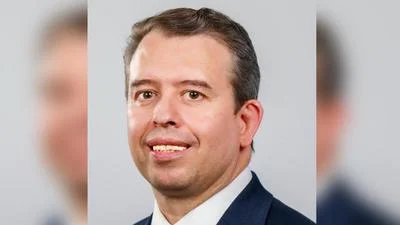Brandon Johnson Mayor | Chicago Contrarian
Brandon Johnson Mayor | Chicago Contrarian
Chicago is facing significant financial challenges across its city budget, public schools, and transit system. Mayor Brandon Johnson has responded by advocating for higher taxes on affluent residents and businesses. “Tax the rich” remains a central theme in his approach to addressing these fiscal issues.
According to the mayor’s critics, this strategy fails to address the complexity of Chicago’s financial problems. They argue that instead of reforming spending or improving efficiency, Johnson is following an agenda influenced by the Chicago Teachers Union (CTU). Currently, 56 percent of local property tax revenue goes to Chicago Public Schools (CPS), which also receives nearly $1 billion in additional city subsidies each year. Since 2019, city spending has increased by $6.6 billion—a 62-percent rise—while per-student spending at CPS has grown almost 40 percent despite a 9 percent drop in enrollment. The Chicago Transit Authority (CTA) has expanded its operating budget by 30 percent since 2019 but has only recovered about two-thirds of its pre-pandemic ridership.
Despite receiving nearly $6 billion in federal pandemic relief funds, critics say these resources were used to expand budgets and programs rather than making long-term adjustments for sustainability.
Mayor Johnson and CTU President Stacy Davis Gates have promoted a narrative focused on taxing wealthy individuals and blaming figures such as Donald Trump for funding shortfalls. The CTU has called for a special legislative session to address what it describes as “egregious underfunding” of public schools, even though CPS spends over $30,000 per student.
Recently, Johnson suggested reinstating a city “head tax,” which would primarily affect businesses. A proposal from the Institute for the Public Good would introduce a payroll expense tax modeled after Seattle’s JumpStart tax: a five percent levy on companies with annual payrolls above $8 million and employees earning at least $200,000.
Additional revenue-raising ideas released last week include new taxes on sports betting and driving (a congestion tax), as well as increases in taxes on liquor, restaurant meals, bottled water, checkout bags, and an expansion of the amusement tax. Supporters estimate these measures could generate just over $300 million annually.
Critics warn that Illinois is experiencing an economic decline marked by population loss—over 1.6 million residents since 2000—and shrinking taxable income bases. Most people leaving are younger families and higher-income earners. High taxes are cited as one of the main reasons behind this trend; according to research from the Lincoln Institute of Land Policy (https://www.lincolninst.edu/), Chicago holds the highest commercial property taxes among U.S. cities—twice the national average.
Since Governor Pritzker took office, Illinois ranked near the bottom nationally in job creation according to Wirepoints (https://wirepoints.org/). Growth that did occur was mostly limited to public sector jobs while private sector employment declined.
In addition to losing residents—87,311 left Illinois in 2022 alone—the state lost approximately $9.8 billion in taxable income that year. Over ten years ending in 2022, Illinois lost more than 60,000 residents earning above $200,000 annually—a net outflow totaling around $40 billion according to Wirepoints’ analysis.
During COVID-19 emergency relief efforts when Illinois received about $20 billion combined with Chicago for operations from federal sources (https://www.census.gov/programs-surveys/agexternal.html), state lawmakers passed record-high budgets with increased taxes while neighboring states lowered theirs. As a result, many former Illinoisans moved to Indiana or Wisconsin where typical families can save thousands annually due to lower taxes.
Federal data shows high-income earners already pay most federal income taxes: “According to the IRS, the top 15 percent of income earners paid roughly 72 percent of all federal income taxes in 2022. The bottom 50 percent pay less than 3 percent.”
A recent WalletHub study found that despite high taxation levels at both city and state levels (https://wallethub.com/edu/economic-equity-study/81598), Illinois ranks last nationwide in economic equity outcomes.
Critics conclude that attempts by Mayor Johnson and his supporters—including broad-based business or personal tax hikes—to resolve deficits without reducing government spending will likely worsen economic conditions: “Efforts by Mayor Johnson and his supporters, led by the Chicago Teacher Union, to close the city, schools and transit systems massive deficits by targeting high earners...will backfire...It may be politically expedient but it’s a fiscal dead end.”






 Alerts Sign-up
Alerts Sign-up